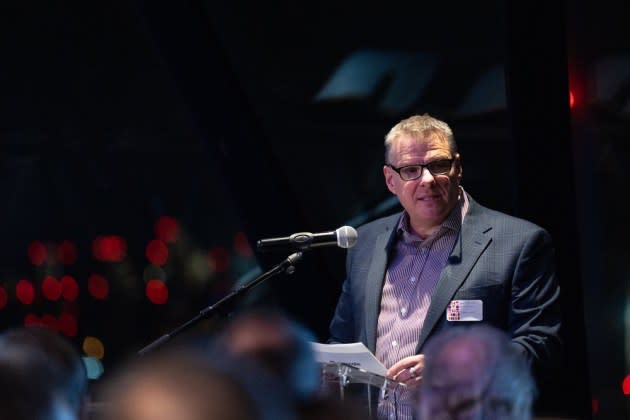Cascale, Fair Wear Foundation Enter Into ‘Strategic Collaboration’

The fashion supply chain is inherently unfair. This is a problem, according to Andrew Martin, executive vice president at Cascale, née the Sustainable Apparel Coalition, because power imbalances can breed human rights and environmental violations.
“More equitable partnerships are not only desirable but are a necessary driving force for continuous improvement in responsible business conduct, and effective due diligence has a pivotal role to play in delivering this,” Martin said.
More from Sourcing Journal
Can a Rebrand Quell the Sustainable Apparel Coalition's Critics?
'We Had a Deal': Germany, Italy and France Throw CSDDD Talks Into Chaos
On Friday, Cascale, which convenes more than 300 stakeholders in the consumer goods industry, including high-rollers such as Amazon, H&M Group, The North Face owner VF Corp. and Zara owner Inditex, revealed that it had entered into a “strategic collaboration” with Fair Wear Foundation, an Amsterdam-based multi-stakeholder group that works with brands such as Filippa K, Ganni and Hessnatur to improve working conditions in the garment industry.
While the specifics of their partnership are still being worked out, creating greater industry alignment, Martin said, can help both organizations “expand and scale the systemic change needed to address the human rights challenges we face.”
The organizations are already in simpatico, they say. Both Cascale and Fair Wear have thrown their support between the European Union supply chain act known as the corporate sustainability due diligence directive, or CSDDD, believing that mandatory due diligence is a “catalyst” for industry-wide change. The CSDDD, after many delays, finally clinched the European Council’s O.K., albeit a little worse for wear, earlier this month. With approval from the European Parliament’s Committee on Legal Affairs now in the bag, all that remains is a plenary vote to adopt the directive in April.
The gist is that Cascale and Fair Wear, through collaboration, can help brands overcome the industry’s fragmented nature and meet current and upcoming legislative requirements.
Alexander Kohnstamm, executive director at Fair Wear, called the move a “great step in raising the bar for human rights in global garment supply chains.”
“With 25 years of experience in what is now known as human rights due diligence, Fair Wear knows that industry alignment is a condition for real impact on workers,” he said. “Now that legislation is a fact, we are ready to provide Cascale members with Fair Wear’s knowledge and solutions to facilitate impactful due diligence.”
Among Fair Wear’s offerings is the Fair Price app, which uses “fact-based” costing to ensure that prices paid by buyers to suppliers adequately cover labor expenses, including wage increases. It developed the Wage Ladder, an online tool that compares wages paid at any factory against a range of minimum and living wage benchmarks. Fair Wear is also part of the working group behind the Common Framework for Responsible Purchasing Practices, which the then-SAC used to guide its revision of the commercial practices section of its Higg Brand and Retailer Module in 2023.
The announcement comes several months after Cascale, still known as the SAC, inked a similar Memorandum of Understanding with the International Apparel Federation, a consortium of national clothing associations and the suppliers they represent.
The deal, the organizations said at the time, aims to “advance a shared vision for equitable and sustainable global supply chains for the apparel and fashion industry,” one that is underpinned by an “understanding of the need to further advance balance and equal partnership in commercial activities throughout the supply chain.”
Among the issues it plans to tackle are decarbonization, audit fatigue and a dearth of manufacturers’ voices and perspectives at the table.
“We believe this collaboration will enable us to harness our collective strength in our work on areas from decarbonization, to purchasing practices and more, and will see us co-create solutions that drive rapid progress at scale,” Martin said in September. “We are at a critical point for our planet and now more than ever, we must work together to solve the industry’s most urgent and systemic issues, and doing all we can to elevate manufacturer voices and perspectives is essential not only for the SAC but our industry as a whole.”
